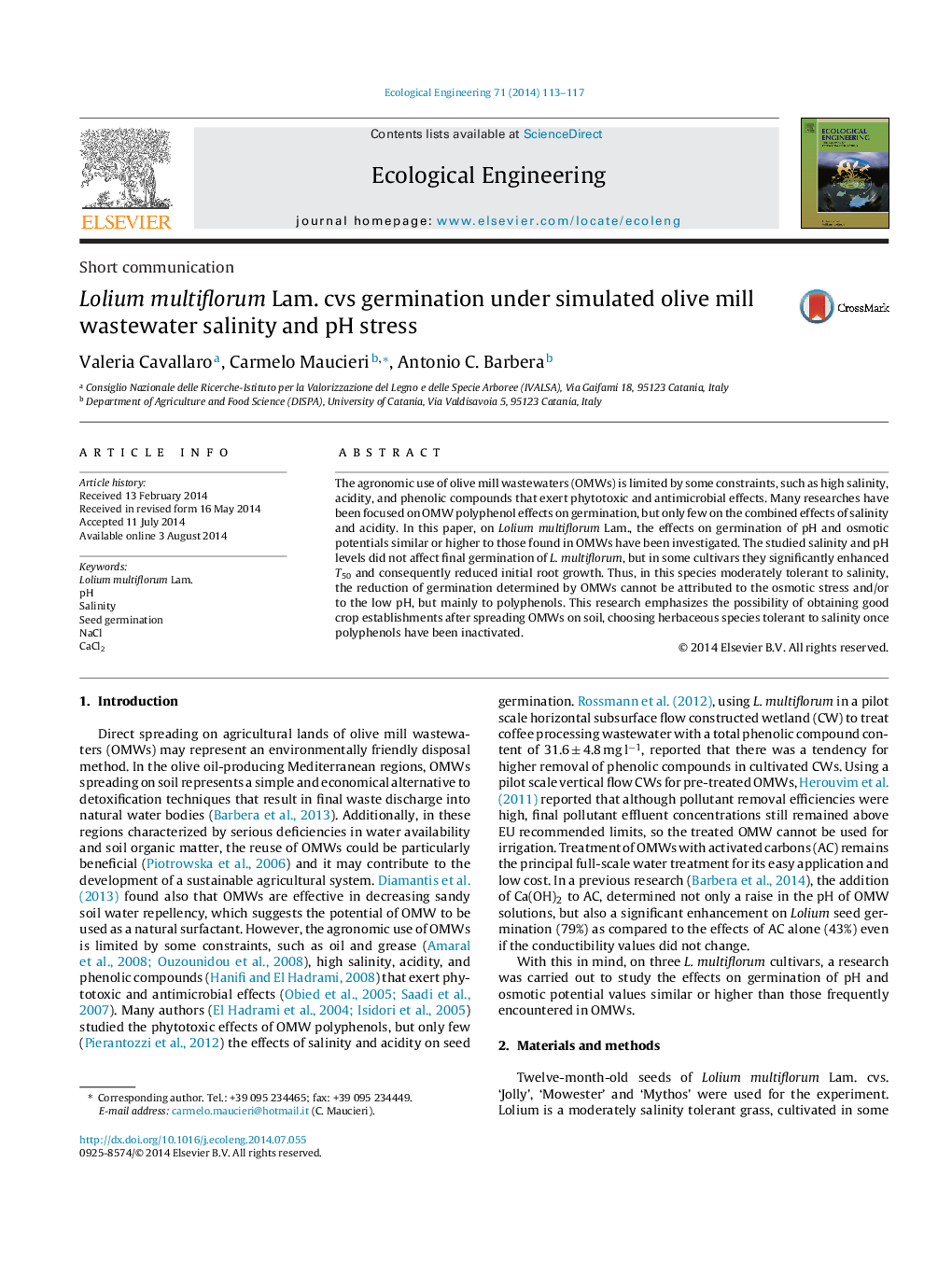| Article ID | Journal | Published Year | Pages | File Type |
|---|---|---|---|---|
| 4389145 | Ecological Engineering | 2014 | 5 Pages |
•Studied salinity and pH levels did not affect final germination of Lolium multiflorum.•Studied salinity and pH levels, in some Lolium cultivar, enhanced T50.•All studied treatments significantly decreased Lolium root length.•Spreading OMWs with inactivated polyphenols allows a satisfactory crop establishment.
The agronomic use of olive mill wastewaters (OMWs) is limited by some constraints, such as high salinity, acidity, and phenolic compounds that exert phytotoxic and antimicrobial effects. Many researches have been focused on OMW polyphenol effects on germination, but only few on the combined effects of salinity and acidity. In this paper, on Lolium multiflorum Lam., the effects on germination of pH and osmotic potentials similar or higher to those found in OMWs have been investigated. The studied salinity and pH levels did not affect final germination of L. multiflorum, but in some cultivars they significantly enhanced T50 and consequently reduced initial root growth. Thus, in this species moderately tolerant to salinity, the reduction of germination determined by OMWs cannot be attributed to the osmotic stress and/or to the low pH, but mainly to polyphenols. This research emphasizes the possibility of obtaining good crop establishments after spreading OMWs on soil, choosing herbaceous species tolerant to salinity once polyphenols have been inactivated.
